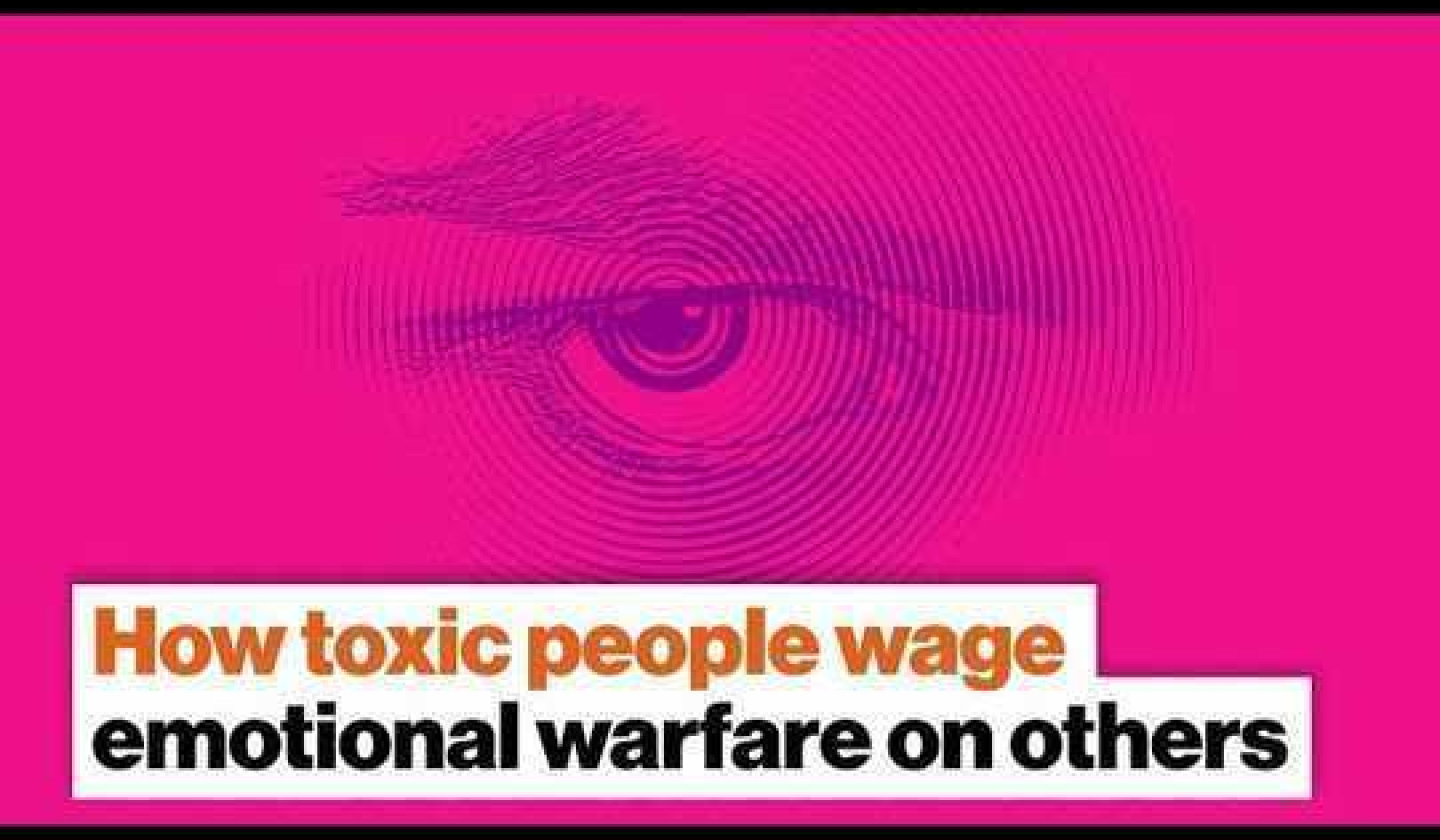
In This Article:
- Why is empathy in decline today?
- How does technology contribute to a lack of empathy?
- What steps can we take to develop empathy in a disconnected society?
- How does political division erode empathy?
- What are practical ways to foster empathy in everyday life?
Developing Empathy in an Unemphatic World
by Robert Jennings, InnerSelf.com
As our world becomes more fast-paced and digitized, the capacity for empathy—the ability to understand and share the feelings of others—appears to be on the decline. Studies show that people today are more isolated, divided, and less willing to engage with others' perspectives. This empathy deficit is harmful to personal relationships and poses a challenge to societal cohesion and well-being.
How can we foster and cultivate empathy in an environment where political polarization, social media, and global crises overwhelm us? This question becomes even more urgent when considering that empathy is foundational to human connection, compassion, and problem-solving. Developing empathy in a seemingly unemphatic world may feel like a tall order, but it is both necessary and possible.
What Is Empathy: A Human Connection
Empathy isn't just an abstract concept; it is a deeply ingrained part of human nature that enables us to connect with others on an emotional level. At its core, empathy is the ability to understand and share another person's feelings. This understanding allows us to step outside of our own experiences and consider the perspectives, emotions, and challenges that others face. Empathy goes beyond simply acknowledging that someone else is feeling a certain way—it involves truly grasping their emotional state and, in some cases, even feeling what they are experiencing.
Empathy is rooted in biology, with neuroimaging studies revealing that specific brain areas, such as the anterior insula and anterior cingulate cortex, become active when we empathize with others. These regions are critical for processing emotional responses and helping us relate to the pain, joy, or struggles of those around us. They are also involved in mirroring behaviors, which allow us to feel a sense of shared experience with another person. For example, when we see someone in distress, these brain regions are activated, prompting us to feel concerned and potentially motivating us to offer support.
However, empathy is not solely an innate trait or a fixed ability. While we are all born with the capacity for empathy, it can be nurtured, developed, and strengthened over time. Research indicates that empathy is a skill that can be enhanced through experiences, education, and intentional practice. Exposure to diverse perspectives, engaging in meaningful conversations, and consciously working to understand others' emotions can all contribute to building empathy.
Much like a muscle, empathy becomes stronger the more we use it. By actively engaging in empathetic behaviors—such as listening attentively, putting ourselves in others' shoes, or offering support in times of need—we become more attuned to the emotions of others. Over time, this practice makes empathy feel more natural and automatic, leading to deeper connections with those around us and a more remarkable ability to navigate complex social dynamics. In this way, empathy is a natural human trait and a skill we can continue cultivating throughout our lives, making us more compassionate and understanding.
Why Empathy Is Declining
One key reason for the decline in empathy is the disconnection from face-to-face communication, amplified by the digital age. Social media encourages quick reactions, often devoid of context, reducing complex human interactions to likes, shares, or angry comments. While digital platforms connect us to more people than ever, they do so superficially, often filtering out opportunities for proper understanding.
Another factor is societal stress. Political unrest, economic uncertainty, and climate change all lead to a heightened focus on personal survival, leaving little emotional energy to spare for others. The "survival of the fittest" mentality has given rise to individualism, emphasizing personal success rather than collective well-being. Empathy is often perceived as a weakness rather than a strength in this environment.
The Rise of Automated Systems and Social Media
Automated answering systems, powered by artificial intelligence (AI) and machine learning, have transformed how we interact with businesses. These systems promise efficiency, quick responses, and 24/7 availability. Still, they often fail to deliver a genuine emotional understanding of human interaction. While they mimic empathy with phrases like "I understand your frustration" or "I'm sorry to hear that," the emotional connection is hollow when followed by irrelevant or unhelpful solutions.
Empathy, by its nature, is deeply personal and requires adapting to the subtle nuances of a conversation. Automated systems, despite their sophistication, cannot truly connect with users on this level. This disconnect leaves people even more frustrated and alienated, particularly when these systems fail to understand their needs or loop them through endless options without resolving their issues. The lack of a smooth transition to a human representative compounds the frustration, making users feel trapped in a system prioritizing efficiency over genuine care.
Furthermore, social media platforms mirror this issue by providing users with a detached environment to express thoughts and emotions without facing the consequences of real human interaction. Many people say things online they would never say in person, emboldened by the anonymity and distance these platforms offer. This disconnect from face-to-face communication diminishes empathy, fostering a culture of negativity, hatred, and discontent. Like automated systems, social media amplifies emotional distance, making it harder for genuine empathy to thrive.
Ultimately, while automation and online platforms have benefits, they must catch up when replicating the depth of understanding and care that only humans can provide. Companies and platforms would do well to remember that no technology, no matter how advanced, can replace the emotional connection and genuine empathy integral to human interaction.
Political Leaders Weaponizing Division
Throughout history, political leaders have exploited racism, xenophobia, and religious divides to gain power by turning people against one another. By stoking fear and resentment, these leaders dilute empathy and often replace it with outright hatred, fracturing societies along ethnic, religious, and ideological lines. This tactic has been used repeatedly to consolidate power and distract from more profound systemic issues, creating scapegoats rather than addressing underlying problems.
These divisive strategies play out in real-time in modern politics, particularly in the United States. The political landscape has become sharply polarized, with liberals and conservatives increasingly pitted against one another in what feels like a never-ending culture war. Politicians often exploit issues like immigration, racial equality, and religious differences to rally their base, creating an "us vs. them" mentality.
These divisions are carefully curated and amplified through rhetoric that portrays entire groups as threats to national security, traditional values, or economic stability. Anti-immigration sentiment, for example, is often driven by unfounded claims that immigrants steal jobs or increase crime, even when evidence contradicts these narratives. Such rhetoric fosters division and undermines empathy by encouraging people to see others not as individuals but as faceless threats.
The Politics of Fear: Fueling Racism and Xenophobia
Leaders seeking to consolidate power often use fear to dehumanize certain groups, portraying them as the "other." Racism and xenophobia are potent tools in this strategy. Immigrants, minorities, and marginalized communities are depicted as invaders or enemies within, leading to policies that exclude, detain, or expel them. In many cases, these tactics distract from more profound economic or social inequalities, redirecting public anger toward those who are most vulnerable rather than the systems perpetuating inequality. By framing these groups as outsiders or threats, politicians shift focus from the actual causes of societal problems and instead offer simplistic, often false, solutions that involve exclusion and punishment.
In the U.S., anti-immigration policies have been justified by fear-based narratives that vilify entire populations, especially those from Latin America, the Middle East, and Africa. This has led to harsh immigration laws, family separations, and policies like travel bans targeting specific religious groups. The message is clear: some people are less deserving of rights, freedoms, or even human dignity simply because of where they come from or the color of their skin. Such policies erode empathy, as citizens become desensitized to the suffering of others and view these groups as undeserving of compassion.
Liberals vs. Conservatives in American Politics
The divide between liberals and conservatives in American politics has become so pronounced that it often feels like two distinct nations exist within one country. Political leaders on both sides of the spectrum have contributed to this division. Still, the rise of right-wing false populism has exacerbated it significantly. In the quest for power, these false populist leaders frequently paint their opponents not merely as political rivals but as existential threats to the nation's very fabric.
Liberals are often portrayed as unpatriotic, socialist, or enemies of traditional values. At the same time, conservatives are labeled as racist, backward, or anti-democratic. This mutual vilification creates an environment where genuine dialogue is nearly impossible and where empathy for those with differing political views is not just discouraged—it is seen as a betrayal.
This division is not just ideological; it manifests in everyday interactions, from family gatherings to workplace discussions. Empathy is one of the first casualties of this polarization. When people are constantly bombarded with messages that those on the other side are dangerous or immoral, it becomes harder to see them as fellow citizens, let alone as human beings worthy of understanding and compassion. The result is a vicious cycle in which political leaders continue exploiting this divide, deepening hatred and mistrust while advancing their agendas.
The Dangers of Divisive Leadership
History provides chilling examples of how divisive leadership can lead to unimaginable atrocities. In Rwanda, political leaders exploited ethnic tensions between the Hutu and Tutsi populations to incite one of the most horrific genocides in modern history. By portraying the Tutsi minority as a threat to the nation, the government fueled widespread hatred, culminating in the massacre of nearly 800,000 people over just 100 days. This genocide was not inevitable but was the result of years of political manipulation, propaganda, and the systematic dehumanization of an entire group of people.
Similarly, the Holocaust remains one of the most devastating examples of how hate-fueled leadership can lead to mass extermination. Adolf Hitler and the Nazi regime systematically dehumanized the Jewish population, labeling them as the root of Germany's economic and social problems. Through relentless propaganda and coercion, they incited an entire nation to view Jews as subhuman, leading to the systematic murder of six million Jews in concentration camps during World War II. The Holocaust demonstrates how leaders can manipulate fear and prejudice to justify genocide and ethnic cleansing on a massive scale.
The religious wars of the Crusades also exemplify the destructive power of divisive leadership. Leaders used religious rhetoric to stoke fear and hatred between Christians and Muslims, turning what could have been peaceful coexistence into centuries of bloodshed. Faith, weaponized by those in power, became a tool for control, leaving deep divisions that still resonate today in geopolitical conflicts.
Even in more recent history, the violent conflict between Catholics and Protestants in Northern Ireland, known as The Troubles, underscores how political and religious divisions can be weaponized. Political leaders on both sides fueled decades of violence by exploiting religious and nationalistic identities, turning neighbors into enemies. The eventual peace process demonstrated that while division can be easily incited, rebuilding empathy and understanding takes immense time, effort, and a commitment to healing.
From Rwanda to the Crusades and the Holocaust, these events serve as stark reminders of the dangers of leadership that thrives on division. When fear, hatred, and dehumanization are weaponized for political gain, empathy is extinguished, leading to atrocities that have lasting scars on humanity. These lessons from history emphasize the importance of resisting divisive rhetoric and fostering unity, compassion, and understanding in leadership.
Empathy, while fragile in such environments, can be rebuilt. It requires conscious effort from individuals, communities, and leaders willing to engage in dialogue, seek common ground, and prioritize human dignity over political gain. The future depends on our ability to resist the divisive rhetoric and foster empathy, not just for those like us but for all of humanity.
Cultivating Empathy: Where Do We Begin?
Empathy begins with listening. Truly listening to others—not just to respond but to understand—creates space for compassion to grow. This practice requires patience and an openness to perspectives that differ from our own. Active listening skills, such as paraphrasing and asking thoughtful questions, help deepen these connections.
Another essential component is self-reflection. To empathize with others, we must first be in tune with our emotions. Mindfulness practices, such as meditation, can help increase self-awareness, making it easier to recognize the feelings of others. By acknowledging our vulnerabilities, we are better equipped to relate to the struggles of those around us.
Empathy doesn't stop with understanding; it must be paired with action. In relationships, it can be as simple as offering support to a needy friend. On a broader scale, empathy drives social justice movements, encourages humanitarian efforts, and creates inclusive communities where everyone feels valued.
Cultivating an empathetic workplace environment boosts collaboration, innovation, and morale. Research has shown that empathetic leadership enhances employee satisfaction and productivity. Companies and organizations prioritizing empathy are more likely to attract and retain talent, creating spaces where everyone thrives.
Practical Steps to Build Empathy
So, how do we begin building empathy in our own lives? Here are some practical steps:
- Practice active listening: Make an effort to listen when others speak without interrupting or preparing your response while they're still talking.
- Seek diverse perspectives: Broaden your understanding by engaging with people from different cultural, socioeconomic, and ideological backgrounds.
- Read literature or watch films exploring complex characters: Immersing yourself in others' stories helps you understand different human experiences.
- Engage in acts of kindness: Small, everyday gestures of kindness can help foster empathy and compassion.
- Practice mindfulness and self-reflection: Understanding your own emotions will make it easier to connect with the feelings of others.
Developing empathy is essential for creating a more just, compassionate, and connected world. Empathy offers a pathway to healing and reconciliation in a time of unprecedented challenges. By actively listening, learning, and caring for others, we can bridge divides, strengthen communities, and build a future where empathy becomes a guiding principle.
While the task may seem daunting, the ripple effect of empathy is profound. One act of understanding can inspire many more, ultimately transforming the world around us. As we navigate an increasingly unemphatic world, let empathy be our compass, pointing toward a more harmonious and humane society.
Article Recap:
This article explores the decline of empathy in a divided, technology-driven world. It explains how political division, social media, and automation contribute to losing human connection. Offering practical strategies to develop empathy, the article emphasizes the importance of compassion and emotional understanding in rebuilding societal bonds and overcoming the growing unempathic environment.
About the Author
 Robert Jennings is co-publisher of InnerSelf.com with his wife Marie T Russell. He attended the University of Florida, Southern Technical Institute, and the University of Central Florida with studies in real estate, urban development, finance, architectural engineering, and elementary education. He was a member of the US Marine Corps and The US Army having commanded a field artillery battery in Germany. He worked in real estate finance, construction and development for 25 years before starting InnerSelf.com in 1996.
Robert Jennings is co-publisher of InnerSelf.com with his wife Marie T Russell. He attended the University of Florida, Southern Technical Institute, and the University of Central Florida with studies in real estate, urban development, finance, architectural engineering, and elementary education. He was a member of the US Marine Corps and The US Army having commanded a field artillery battery in Germany. He worked in real estate finance, construction and development for 25 years before starting InnerSelf.com in 1996.
InnerSelf is dedicated to sharing information that allows people to make educated and insightful choices in their personal life, for the good of the commons, and for the well-being of the planet. InnerSelf Magazine is in its 30+year of publication in either print (1984-1995) or online as InnerSelf.com. Please support our work.
Creative Commons 4.0
This article is licensed under a Creative Commons Attribution-Share Alike 4.0 License. Attribute the author Robert Jennings, InnerSelf.com. Link back to the article This article originally appeared on InnerSelf.com

Books Improving Attitude and Behavior from Amazon's Best Sellers list
"Atomic Habits: An Easy & Proven Way to Build Good Habits & Break Bad Ones"
by James Clear
In this book, James Clear presents a comprehensive guide to building good habits and breaking bad ones. The book includes practical advice and strategies for creating lasting behavior change, based on the latest research in psychology and neuroscience.
Click for more info or to order
"Unf*ck Your Brain: Using Science to Get Over Anxiety, Depression, Anger, Freak-Outs, and Triggers"
by Faith G. Harper, PhD, LPC-S, ACS, ACN
In this book, Dr. Faith Harper offers a guide to understanding and managing common emotional and behavioral issues, including anxiety, depression, and anger. The book includes information on the science behind these issues, as well as practical advice and exercises for coping and healing.
Click for more info or to order
"The Power of Habit: Why We Do What We Do in Life and Business"
by Charles Duhigg
In this book, Charles Duhigg explores the science of habit formation and how habits impact our lives, both personally and professionally. The book includes stories of individuals and organizations who have successfully changed their habits, as well as practical advice for creating lasting behavior change.
Click for more info or to order
"Tiny Habits: The Small Changes That Change Everything"
by BJ Fogg
In this book, BJ Fogg presents a guide to creating lasting behavior change through small, incremental habits. The book includes practical advice and strategies for identifying and implementing tiny habits that can lead to big changes over time.
Click for more info or to order
"The 5 AM Club: Own Your Morning, Elevate Your Life"
by Robin Sharma
In this book, Robin Sharma presents a guide to maximizing your productivity and potential by starting your day early. The book includes practical advice and strategies for creating a morning routine that supports your goals and values, as well as inspiring stories of individuals who have transformed their lives through early rising.
Click for more info or to order






























